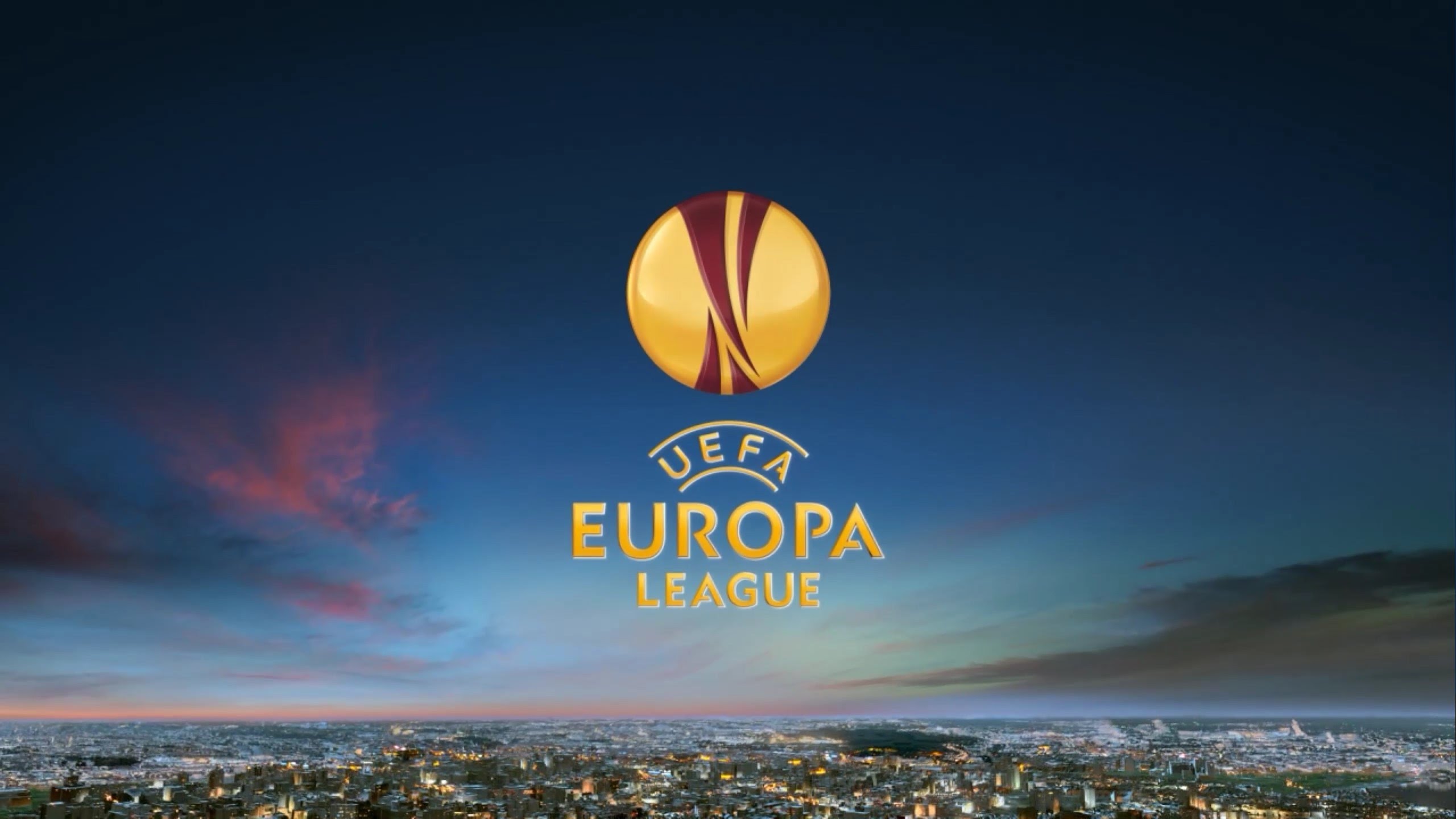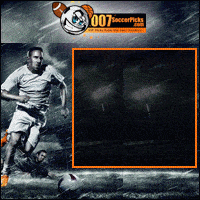Sloboda vs. Beitar Jerusalem Free Live Online Streaming Details
FK Sloboda Tuzla was founded in 1919, as a part of the Labour Sport Society Gorki, named after the great socialist Russian poet Maxim Gorky. The football club and the labour society was popular in a wide part of the sporting public in Tuzla and beyond. The club was formed on the initiative of the Tuzla branch of the newly formed Communist party of Yugoslavia, under the influence of the ideas of the October revolution of 1917 and revolutionary movements in Yugoslavia and Bosnia and Herzegovina as its integral part.
After the initial congress of unification and the creation of the Socialist Labour Party in Yugoslavia that took place in Vukovar, Croatia in 1919, the first conference of the Tuzla municipal organisation of the SWPY(c) took place on 17 October 1919 in Tuzla. The elected party council decided on the same day to start with the formation of a worker’s sporting society. The official founding of the club took place in the end of October 1919, and gathering was led by Jovo Sretenović, Mato Vidović, Safet Hadžiefendić, Ljubko Simić, Niko Trifković and Petar Dugonjić.
The men elected into the first Board of directors of the club were: Leonard Bancher, Mato Vidović, Niko Trifković, Stjepan Brkljačić and Alfred Puhta, Mijo Cuvaj and Ahmed Mandžić, Franto Bauzek (locksmith), Emil Kranjčec, Jakov Čurić and Petar Dugonjić, Franjo Miškovski, Safet Hadžiefendić, August Mot and Karlo Schwartz. The origin of the original name of the sporting society, Gorki, was explained by Petar Dugonjić:
When the final preparations for the organising meeting were being dealt with, it was suggested that the club be named Sokolović, after Mićo Sokolović, a known worker’s rights activist. Then Mitar Trifunović noticed: “People, few will know that we named the Club after our Mića. Most will think of Mehmed-paša Sokolović”. The practical Franjo Rezač insisted we go to the meeting with a concrete name suggestion. Mitar Trifunović then said: “If no one objects, I would suggest the club bears the name of Maxim Gorky”. I remember it well. Afterwards the name was accepted with enthusiasm at the meeting.
The first headquarters of the club was in Rudarska Street in Tuzla, not far from Skver is today. Afterwards the headquarters moved to the building of the Jewish Bank, then to the Grand Hotel and then back to Rudarska Street. The games were played on two fields – the first one was called the Communist playground between what today are the Chemical and Mechanical high-schools and the second one was the field where the Braća Ribar primary schools stands.
All the players were workers, and the Gorki first team had the following players: Mirko Veseli, Peri Mot, Karlo Krejči, Santo Altarac, Ivica Šifer, Franto Bauzek, Mijo Josić, Lorenc Ajhberger, Vili Zaboš, Slavko Zafani, Ahmed Mandžić, Alfred Puhta, Jozo Vikić, Malaga Mustačević, Dragoslav Stakić and several others. The coach was Brato Gamberger, former player of HŠK Zrinjski.
The club mostly played against other Tuzla football clubs. Namely, at the time of the formation of FK Gorki there were three other football clubs in Tuzla, Zrinjski, Obilić and Makabi, based around the Croatian, Serbian and Jewish population of Tuzla. In 1921 the Bosniak club Bura was also formed. Unlike these confessional clubs, FK Gorki was multinational and accepted members of all faiths and ethnicities.
It is important to note that the official ground of Tuzla in this period was the field of HŠK Zrinjski built in 1928 on the road to Solina from Brčanska Malta with the help of Kalman Liska, a wood merchant and president of HŠK Zrinjski.
Livestreaming links for Sloboda vs. Beitar Jerusalem
As well as bet365 or the sources above, you can also watch the game by visiting the “LIVE STREAMS” page here on 007soccerpicks.com. Every day we’re livestreaming about 50 sport events so there is plenty of room to choose from! For livescores on “Sloboda – Beitar Jerusalem” click here.
Which team will score first (Sloboda or Beitar Jerusalem)?
WATCH >>> Sloboda vs. Beitar Jerusalem <<< LIVE on bet365.com
 Sloboda vs. Beitar Jerusalem is broadcasted LIVE by bet365.
Sloboda vs. Beitar Jerusalem is broadcasted LIVE by bet365.
Also, you can find more sources to watch this game live online for free on this page, below. We are the only website where you can find so many streaming sources for free!
On the other hand, Bet365 streams over 100.000 sports events each year so it’s a great idea to register an account with them! For seeing all events broadcasted live by bet365 follow this link: bet365 live streaming center
LIVE Comments for Sloboda vs. Beitar Jerusalem
The club is based at the Teddy Stadium in the Malha neighborhood, and plays in black and yellow.
Beitar Jerusalem was founded in 1936 by David Horn (born 1916) as a youth team.[1] The first games were held against Armenian and Arab teams in Jerusalem, while Hapoel Jerusalem stayed away because of political hate against Beitar Jerusalem. The club was dismantled in 1938 after one of its managers was arrested by the British Mandate authorities and another was shot and injured in another incident. Beitar’s troubles were linked to its close connections with the Irgun underground with which David Horn and the club’s players were associated. In 1942, the club was reestablished, this time as a club for adults rather than just a youth team, and Shmuel Kirshtein joined the management. Politics again became a problem, with British soldiers and policemen often attending Beitar games to spy and identify the faces of the players.
Jerusalem Cup Games of 1944
15 April 1944: Beitar Jerusalem – Plebis 1–1.
22 April 1944: Beitar Jerusalem – Plebis 2–2.
13 May 1944: Beitar Jerusalem – Plebis 3–2.
20 May 1944: Beitar Jerusalem – Allwain 1–3.
Later, Beitar Jerusalem qualified for the final, which was to be held against the team of the “Paymasters” of the British mandate. The fans of rival Hapoel Jerusalem caused a sabotage, the games were interfered and the “Jerusalem Cup remained in the hands of the politicians in Tel Aviv”,[3] as it was told years later by Shmuel Kirshtein.
Sloboda Live Online
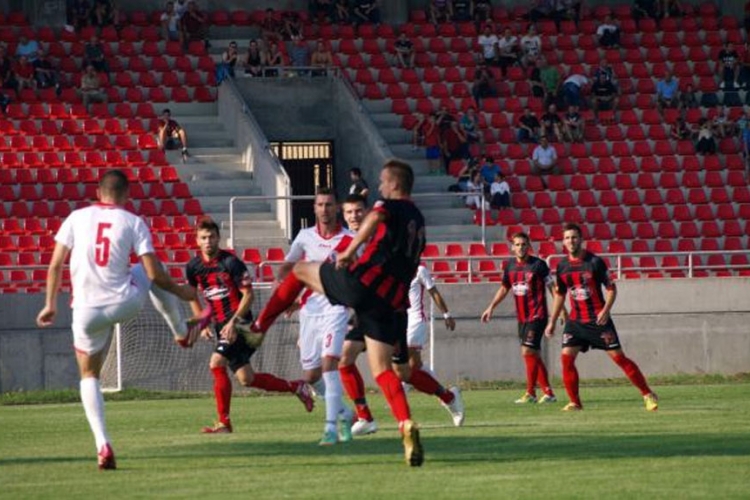
Sloboda Livestreaming
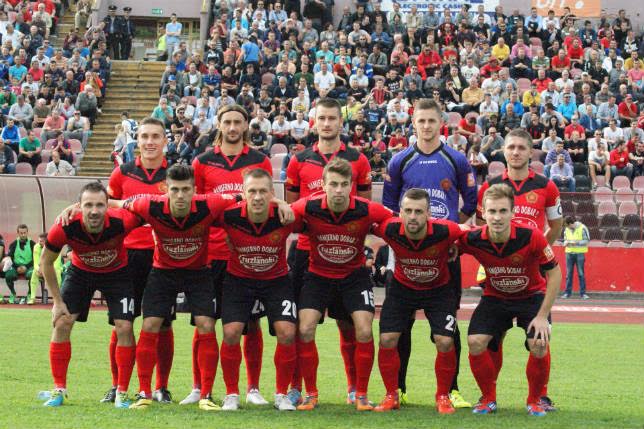
Beitar Jerusalem Live Streams
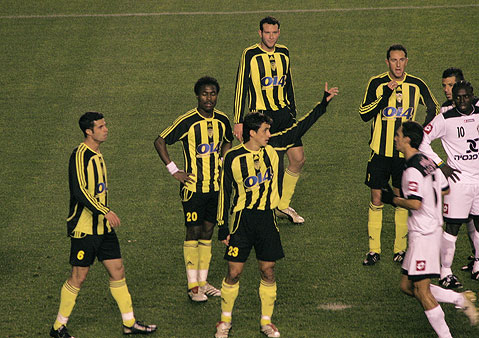
Beitar Jerusalem Livestreams photos
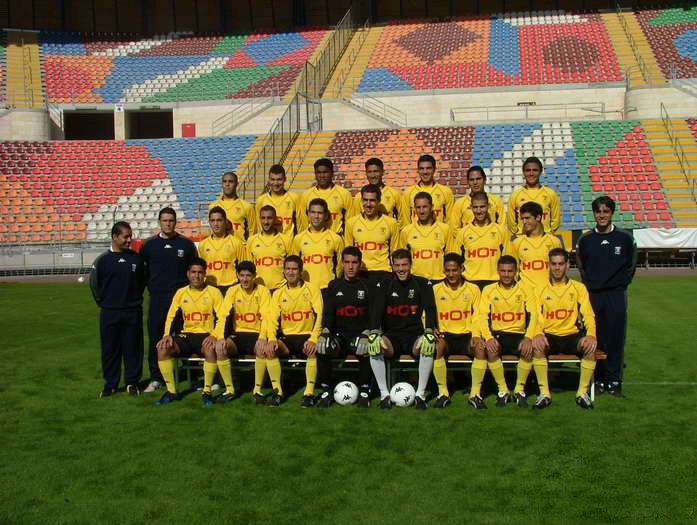
Sloboda – Beitar Jerusalem Live Europa League Qualification
